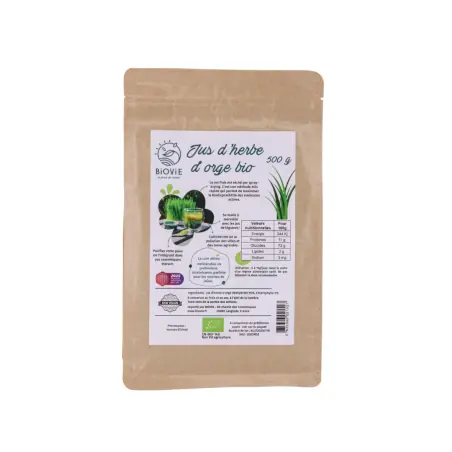Here is our advice.
How does stress impact us ?
Phase 1 ;is an alarm reaction. In response to stress, hormones (adrenaline and noradrenaline) are released by the body via the adrenal medulla. They increase heart rate, blood pressure, respiratory rate, and cause vasodilation of the blood vessels in the muscles. All these changes aim to prepare the body for "fight or flight." In phase 1, "stress has the effect of calling immune cells to their combat positions." If the stressful situation persists, the body enters the resistance phase or phase 2.
Phase 2 ;a second neurohormonal axis, the corticotropic axis, is activated to prepare the body for the energy expenditures required for the stress response. New hormones are then secreted, the glucocorticoids, which notably increase the blood sugar level but also inhibit certain systems that are unnecessary for the stress response, such as the immune system.
Phase 3 ;is that of exhaustion, when the stressful situation continues for an extended period. The overstimulated neurohormonal systems become dysregulated, and the body is flooded with activating hormones that become harmful. Stress becomes chronic when cortisol levels remain high even after the stressor has ceased. Within a few weeks, symptoms such as pain (colic, headaches, muscle and joint pain, etc.), sleep disturbances, appetite and digestion issues, anxiety, increased nervousness, and difficulty concentrating appear.
Chronic stress will monopolize the reserves of sterols or fats for the production of hormones such as cortisol, cortisone, corticosterone, and aldosterone, to the detriment of steroids like testosterone. This results in a decrease in libido as well as in intellectual activity aimed at creativity.
When the state of stress becomes permanent, more serious health alterations can occur: atrophy of the dendrites of the neurons in the pituitary gland. This affects verbal memory and contextual memory (particularly emotional context).
How to "de-stress" in 5 minutes:
- Breathe. Breathing is one of the secrets to successful stress management.
- Laugh. Laughter is an excellent way to defuse a crisis.
- Walk mindfully.
- Listen to music and/or take a good shower.
- Practice a manual activity such as DIY (do-it-yourself).
- Visualize or meditate to let your mind free itself from your current concerns.
- Feel the nature; breathe in the scents of aromatic plants and flowers.
- Get yourself a relaxing massage.

How to get rid of stress and anxiety:
Stress essentially has two causes: an emotional or psychological cause and a biochemical cause.
The emotional or psychological cause often finds its origin in "traumas" unresolved, in beliefs, in "flaws" emotional or psychological immaturity, feelings of inferiority, frustrations, etc.
Whatever happens, we are never affected by objective facts, but by the mental representation that it generates in us. This represents the part on which we can act.
In fact, it is never the actual experience that stresses us, but rather the "story" we consciously or unconsciously tell ourselves about what we have just experienced.
Significant stress related to a particular situation represents blocked energy. By revisiting a stressful experience and giving it a different meaning where we invent a new, non-stressful scenario, we can gradually remove the emotional charge associated with it.
It is advisable to combine the above advice with adherence to all health factors and the recommendations found in the "de-stress in 5 minutes" section.
The biochemical cause. Some deficiencies Micronutrients will contribute to making us more sensitive or more vulnerable to stress. Therefore, it is recommended to take a supplement based on freshly pressed organic vegetable juices, such as carrots and green vegetables. (green cabbage, fennel, parsley, etc.) associated with magnesium supplementation (such as Mag B stress from Horizon Diet), with natural B vitamins (like the barley grass juice powderIt seems like there might be a typo or an incomplete text. Could you please provide the full text you would like translated from French to English? in Omega-3 fatty acid (like fish oil and canola oil), and in amino acids (like sprouted seeds) .
What is the best natural stress reliever:
It's the breathing.
For this, there are many techniques. Here, we suggest practicing heart coherence.
What is cardiac coherence ?
Cardiac coherence allows you to learn how to control your breathing in order to regulate stress and anxiety. This simple technique would also reduce depression and blood pressure.
Possessing nearly 40,000 neurons as well as a complex and dense network of neurotransmitters, the heart communicates directly with the brain. By acting on our heart rate through breathing exercises, we have the ability to send positive messages to the brain and harmonize the functions of these two organs.
Here is a demonstration video.
Our tips for managing your daily stress:
- Ensure the quality of your sleep
- Engage in physical activity daily
- Avoid ingesting substances that overly stimulate your body (tea, coffee, chocolate, sodas, various drugs, alcohol, medications, etc.).
- Practice different stress-relief methods such as breathing exercises, massages, relaxing baths, etc.
- Focus on your thoughts and sensations and live in the present moment.
- Do not feel vulnerable
- Exercise your power to act
- Develop your free will
- Take the time to smile and laugh
- Write in a journal
- Meet people








